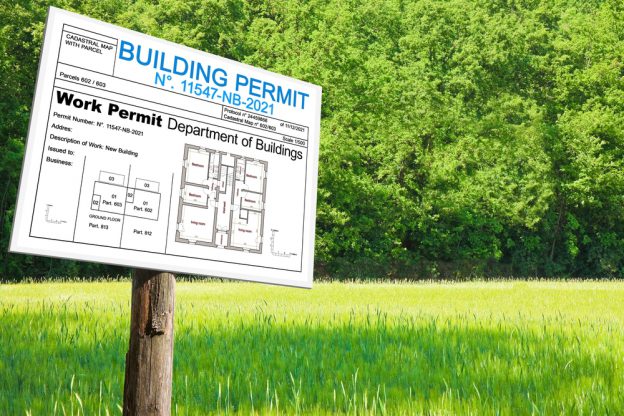As a California contractor, one of the hardest parts of being a contractor is growing your business.
While some contractors are lucky enough to work a number of jobs across different zip codes and geographies, the reality is that the majority of the contractors in the state work in the same area for their entire careers.
With this in mind, it’s absolutely essential for any contractor looking to build success to have a strong local presence. People in your neighborhood need to know who you are and what you do before they can even think about hiring you.
So how do you reach your local market? What are the best ways for California contractors to get their name out there – and ultimately to win more business? Here’s how.
Define and Understand Your Local Market
Before you can market to your local area, you need to understand it, as well as how your skills, or license fits into your local area’s needs. For example, if you’re a C-57 Well Drilling contractor, you might not find much work in Santa Monica.
Here are some easy ways to define your market:
- Demographics: Who are the people in your local area? What is their age range, income level, and housing situation? What types of properties are in your area, and which ones need contractors in your discipline?
- Needs: What are the common construction needs in your area? Are there more demands for home renovations or new constructions?
- Competition: Who are your local competitors? What services do they offer, and how can you differentiate yourself? A quick Google search can provide you with a list of local contractors. Analyze their services, pricing, and customer reviews to identify gaps that your business can fill.
- Networking: Attend industry events, stay up to date with your union meetups, and join professional organizations both locally, regionally and nationally. This not only helps you stay updated with the latest trends but also provides opportunities for networking and collaboration between contracting disciplines. If someone needs a roofer, they’re going to call the roofer they know.
Person-To-Person Contact
Once you’ve understood your local market, the next step is to build a strong local presence. The best way to achieve growth, just like networking, is by face-to-face, in-person connection.
Especially when it comes to something as expensive and important as construction, people want to hire people they trust. Here are some specific ways you can do that.
- Community Involvement: Participate in local events and sponsor local teams or charities. This not only increases your visibility but also builds your reputation as a community-focused business. People trust people who are invested in their own community and success – so put your money where your mouth is.
- Local Partnerships: Partner with local businesses to offer joint promotions or discounts. This can help you reach a wider audience and increase your customer base. For instance, partnering with a local home improvement store or joining forces with other contractors in the area to offer discounts is a great way to net new customers.
- Angie’s List: Angie’s List is a great way to build your local network, as many people use it to find contractors in their area. Sure, this isn’t a direct, in-person way, but usually, if you book a job on Angie’s List, and deliver well, you’ll get hired again.
- Referral Programs: One of the best ways to grow your business locally is via a referral program. Offer incentives like discounts or free services to motivate satisfied customers to refer you to friends. Referential power is the best way to grow your business – Nielsen underlines that 92% of people trust referrals from people they know.
Digital Marketing Is Essential
In today’s digital age, online marketing is a powerful tool for reaching your local audience. Here are some strategies to consider:
- Social Media: You need to be using social media if you want to market yourself effectively – not even contractors are exempt from this. Share updates about your projects, offer home improvement tips, and respond to comments and messages – this will help you stay top of mind for your local customers. And don’t underestimate a good, old-fashioned Facebook group for your local community – it’s a great way to connect with people in your area.
- Online Advertising: Use platforms like Google Ads and Facebook Ads to reach a wider audience. You can target your ads based on location, demographics, and interests to ensure your ads stay relevant to the people you’re trying to reach.
- Email Marketing: Along those lines, sending regular newsletters to your subscribers, offering updates, promotions, or useful content can keep you top of mind. According to a study by Campaign Monitor, email marketing has an ROI of $44 for every $1 spent.
- Local SEO: Optimize your website for local search. This includes using location-specific keywords, such as “California contractor,” and ensuring your business is listed in local directories and on Google Business, so people can find you when they search for you. According to a study by BrightLocal, 93% of consumers used the internet to find a local business in the last year – underlining how important this is to local marketing.
- Content Marketing: Create valuable content related to home construction and renovation and post it on your own website. This not only positions you as an expert for anyone looking at your services but also increases visibility by improving your website’s SEO. You can even go as far as creating video or photo content for TikTok or Instagram.
Track Your Efforts And Iterate
At the end of the day, you have no idea how your efforts are going if you don’t track your data and record the results of your marketing efforts.
Use tools like Google Analytics to monitor your website traffic, social media insights to track engagement, and customer feedback – in the form of customer surveys after a completed job – to gauge satisfaction. According to a report by HubSpot, companies that track their inbound marketing see a 12% increase in conversion rates, really underlining the importance of seeing how your work is doing.
Even if it looks like your marketing efforts aren’t working at all, stay patient. In many cases, it takes a long time for prospective customers to become real customers, up to months or even years in some cases, especially as contractors.
And if you think something isn’t working, you can always iterate upon it. Sometimes it’s as simple as the image you are using for your ad or the subject line of your email. Iteration is a great way to quickly and easily improve your marketing.









